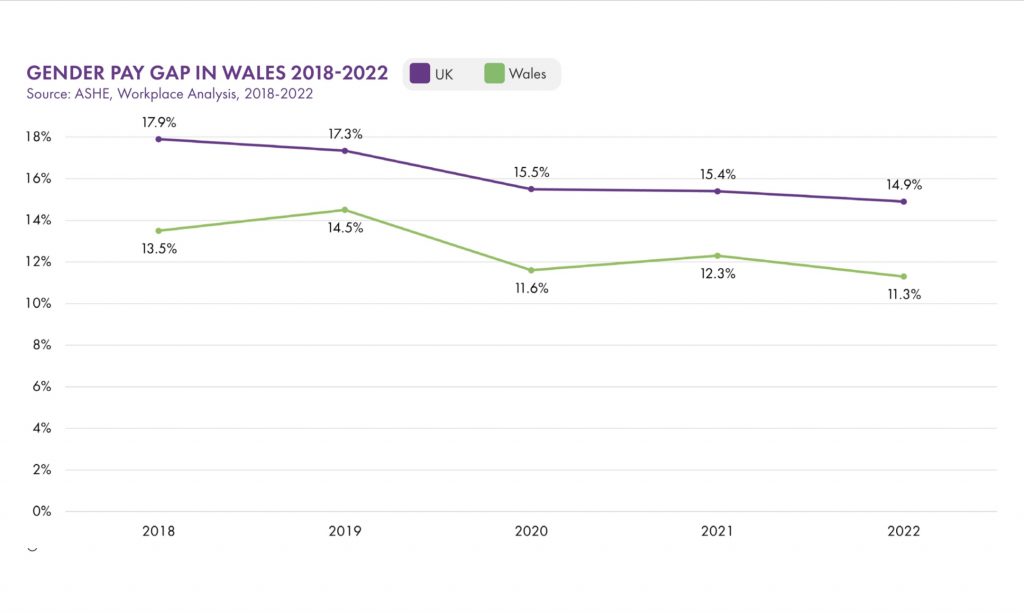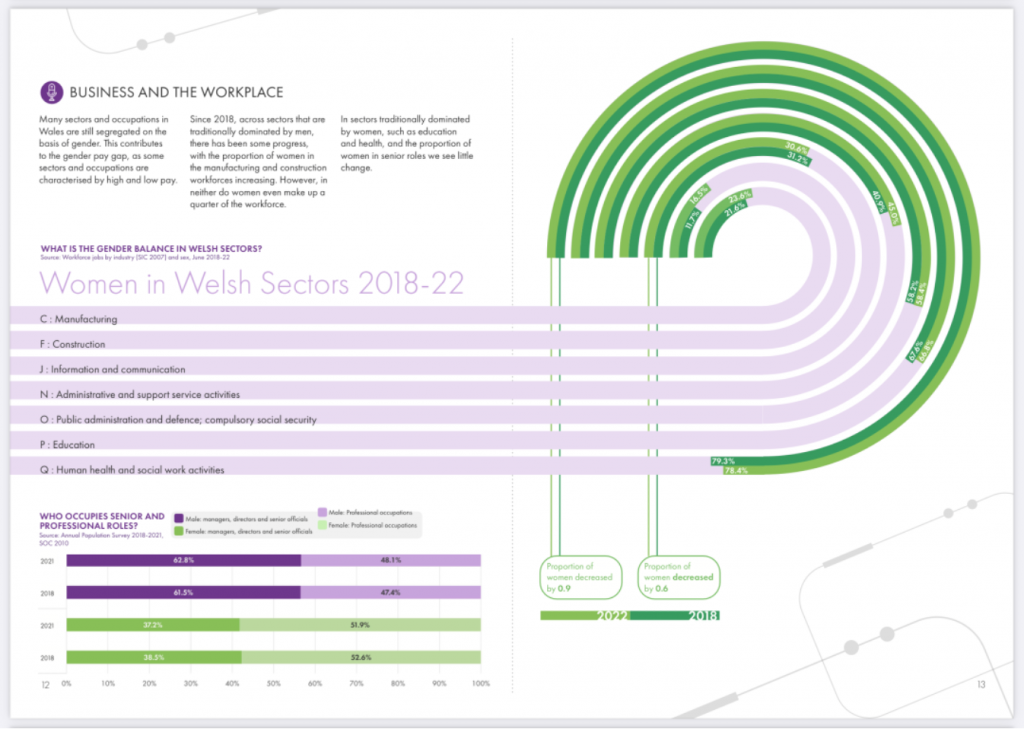The theme for International Women’s Day 2023 is to ‘Embrace Equality’. How far is Wales from gender equality?

Women in Wales better than the rest of the UK but are still way behind men in terms of earnings, according to a leading gender equality charity.
The charity Chwarae Teg conducted the survey and found that the gender pay gap in Wales currently stands at 11.3% while 14.9% in UK. This means that on average, men earn more per hour than women in both Wales and UK.
“Whether you’re a policy maker, politician, employer or individual, each and every one of us can do something to work towards quickening the pace of change,” said Lucy Reynolds, The new Chief Executive of Chwarae Teg. Lucy’s colleague Bethan Airey said, “We need allies of all genders too, as it is the responsibility of the many, not the few, to achieve our goals – it is collective action that drives change.”

The report states that if the current rate of change is maintained, women in Wales will have to wait decades to achieve true equality, while it also states that something can be done to achieve gender equality, regardless of people’s gender and social identity.
The causes of the gender pay gap are a very complex issue. One very important reason is that Women pay a ‘motherhood penalty’, meaning that women often care for young children or older relatives. This means that women are more likely to take part-time jobs, which tend to be lower paying or have fewer opportunities for promotion.
Another important factor is the fragmentation of the labour market. Women and men work in different jobs, and women are still more likely to be in lower paid and lower skilled jobs. For example, 90% of engineers are men, while 83% of primary school teachers are women.
In addition, marginalised groups of women are the most affected by low pay. Those who are women from ethnic minorities, disabled, LGBTQ+ or on low incomes are even further away from gender equality – simply because they are in a less equitable position to begin with.
“We consider the issue of intersectionality which means understanding how characteristics such as gender, race, sexuality, disability, class, age and faith can interact and produce often multiple experiences of disadvantage. For example, women remain less likely to be in work than men, more likely to be out of the labour market due to caring responsibilities, earn less and are disproportionally impacted by the cost-of-living crisis – yet for women with additional protected characteristics, these outcomes are even worse.”

Lucy therefore believes that it is necessary to address the gender pay gap by focusing on the most marginalised first; those women who face the greatest barriers and hardship. “There is no silver bullet, or one size fits all answer to the problem that is inequality.Government, business and individuals all play an active role in tackling inequality,” says Lucy,“We need a truly national mission to tackle gender inequality.”
“Understanding equity and the difference this can make is essential. Giving others the same opportunity does not mean people end up with equal outcomes as we don’t all start from the same position. By giving more support to those at greatest disadvantage we encourage equal outcomes – which is what #EmbraceEquity, the theme of this year’s International Women’s Day, is all about.”
If you wish to follow Chwarae Teg for more information and details of opportunities to get involved, this is their wesite: https://chwaraeteg.com/

